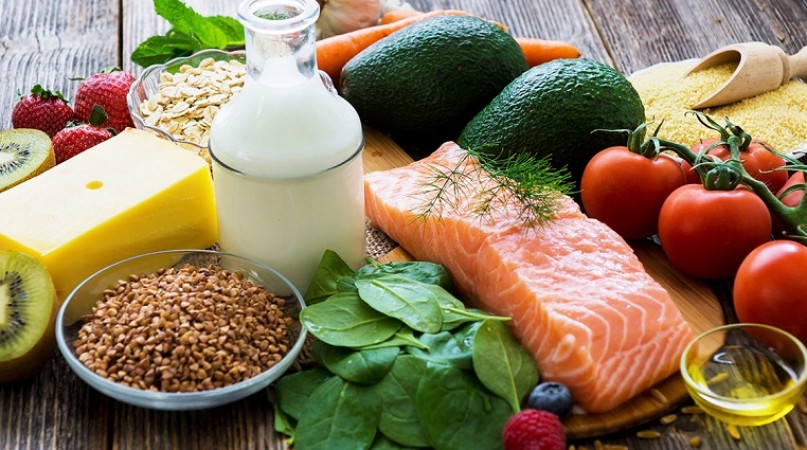
Attention Women - Menopause Diet: What Women Should Eat and Avoid: Menopause is a natural phase in a woman's life that typically occurs between the ages of 45 and 55. During this period, a woman's ovaries gradually stop producing eggs and hormone levels, particularly estrogen and progesterone, decline significantly. This hormonal shift can lead to a wide range of physical and emotional changes, including hot flashes, mood swings, and changes in metabolism. One effective way to manage the symptoms of menopause is through a well-balanced diet. In this article, we will explore what women should eat and avoid during menopause to promote overall health and alleviate some of the common discomforts associated with this transition.
What to Eat During Menopause
Calcium-Rich Foods:
As estrogen levels decline during menopause, women become more susceptible to bone loss and osteoporosis. Consuming calcium-rich foods like dairy products (low-fat or non-fat), leafy greens, tofu, and fortified cereals can help maintain strong bones and reduce the risk of fractures.
Vitamin D:
Vitamin D is crucial for calcium absorption and bone health. Spend some time in the sun, and include foods like fatty fish (salmon, mackerel), fortified dairy products, and egg yolks in your diet to ensure an adequate intake of vitamin D.
Phytoestrogenic Foods:
Phytoestrogens are plant compounds that can mimic the effects of estrogen in the body. Incorporate foods like soybeans, flaxseeds, chickpeas, and lentils into your diet to help alleviate hot flashes and other menopausal symptoms.
Fiber-Rich Foods:
Menopause can sometimes lead to digestive issues, such as constipation. Fiber-rich foods like whole grains, fruits, vegetables, and legumes can promote healthy digestion and prevent weight gain by increasing satiety.
Healthy Fats:
Opt for healthy fats like avocados, nuts, seeds, and olive oil over saturated and trans fats. These fats can help maintain heart health, which becomes increasingly important during menopause.
Iron-Rich Foods:
Although the need for iron decreases after menopause due to the absence of menstruation, it's still essential to maintain a balanced intake of iron-rich foods like lean meats, poultry, beans, and fortified cereals.
Hydration:
Staying hydrated is crucial, as hormonal changes can increase the risk of urinary tract infections. Drink plenty of water throughout the day, and incorporate hydrating foods like watermelon, cucumber, and celery into your diet.
What to Avoid During Menopause
Caffeine and Alcohol:
Both caffeine and alcohol can trigger hot flashes and disrupt sleep patterns. Limit your intake of these substances, especially in the hours leading up to bedtime.
Sugary and Processed Foods:
Highly processed and sugary foods can contribute to weight gain and mood swings. Try to minimize your consumption of sugary snacks, soda, and processed foods.
Spicy Foods:
Spicy foods can exacerbate hot flashes and make them more frequent. If you enjoy spicy dishes, consider reducing their consumption or opting for milder versions.
High-Sodium Foods:
Excessive salt intake can lead to water retention and high blood pressure, which can already be a concern during menopause. Be mindful of your sodium intake and choose low-sodium alternatives when possible.
Fatty Meats and Full-Fat Dairy:
High-fat animal products can contribute to weight gain and heart health issues. Opt for lean meats and low-fat or non-fat dairy products to maintain a healthy weight and support cardiovascular health.
A well-balanced diet is a powerful tool for managing the physical and emotional changes that accompany menopause. By incorporating calcium-rich foods, phytoestrogens, and a variety of nutrient-dense options into your daily meals, you can alleviate some of the symptoms and maintain overall health. Conversely, limiting caffeine, alcohol, sugary, and high-sodium foods can help minimize discomfort and support your well-being during this transitional phase of life. Remember that every woman's experience with menopause is unique, so it's important to consult with a healthcare provider or a registered dietitian to create a personalized nutrition plan that suits your specific needs.